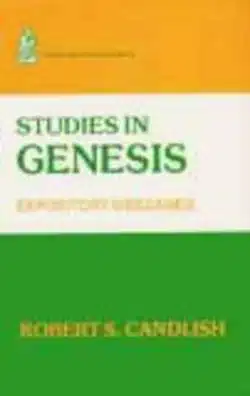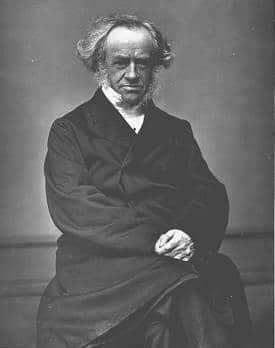There Remaineth a Rest
The primitive institution of the Sabbath—as the sign of that rest into which spiritually and by faith we enter now, as well as the foretaste of the rest which remaineth for us in the world to come—is surely a delightful truth; and its observance cannot but be a precious privilege. This world, with all that it contains, was made for man. Man himself was made for God, for entering into God’s rest. And that he might all the better do so, the Sabbath was made for him. “God blessed the Sabbath-day and hallowed it.” The blessing is not recalled, the consecration is not repealed. There remaineth a rest unto the people of God—and a day of rest. Let us not fall short of the rest hereafter. Let us not despise the day of rest now. Studies in Genesis, Chapter 2
Candlish on Creature-Comfort Stewardship
Robert Smith Candlish discusses the proper approach to the use of creature-comforts (Studies in Genesis; Genesis 1.1) [I]f, on the instant when we were about to use, as we have been wont, any of the creatures of God provided for our accommodation, God himself were to appear personally present before us, and were to say, Son—Daughter—I created this thing which you are about to use—this cup of wine which you are about to drink, this piece of money that you are about to spend, this brother or sister with whom you are now conversing—and I testify this to you, at this particular moment—I, your Lord and your God—I created them—such as they are—for those ends which they are plainly designed to serve;—would we go on to make the very same use of the creature that we intended to make? Or would not our hand be arrested, and our mouth shut, and our spirit made to stand in awe, so that we would not sin?
Manton: Preaching That Which Grace Teacheth
The Rev. Thomas Manton disabusing preachers of the notion that preaching moral duty is necessarily not preaching Christ.
Matthew Henry on Revelation & Light of Nature
“Concerning [creation] the pagan philosophers wretchedly blundered, and became vain in their imaginations, some asserting the world’s eternity and self-existence, others ascribing it to a fortuitous concourse of atoms: thus “the world by wisdom knew not God,” but took a great deal of pains to lose him. The holy scripture therefore, designing by revealed religion to maintain and improve natural religion, to repair the decays of it and supply the defects of it, since the fall, for the reviving of the precepts of the law of nature, lays down, at first, this principle of the unclouded light of nature, That this world was, in the beginning of time, created by a Being of infinite wisdom and power, who was himself before all time and all worlds.” Matthew Henry (Matthew Henry’s Commentary on the Whole Bible: Complete and Unabridged in One Volume, Peabody: Hendrickson, 1994, 3.)

